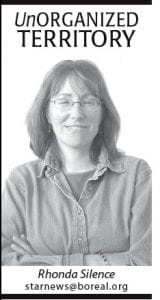It is a newspaper’s job to keep an eye on government. The people in government— city, county, state, or national— may not always appreciate a reporter playing watchdog—asking for clarification on ambiguous discussion after a meeting, insisting on copies of financial information, or reporting an unwise political move. However, it is a newsperson’s duty to carefully observe and share what is happening in the political realm with the rest of the world, which is busily taking care of its own business.
I’m sure the 19th century English Lords who dubbed the press “the fourth estate” didn’t want correspondents covering their every move either. In fact, I’m reasonably sure that the fourth estate was not intended as flattery. In fact, one early mention of the fourth estate, by Henry Fielding, refers to it as “TheMob.”
Theorigin of the term is not entirely clear—there are different versions of how the noble-sounding phrase came to describe the press. However, the most common explanation is that in medieval times, three “estates” were recognized— members of the church, the nobility and commoners. Each group had its distinct role in society and the way the groups— estates—interacted with one another was well established.
Except for another group that included a mixture of all of the other estates—the fourth estate. Thegroup that sat apart from all others in Parliament and in society and who according to Irish statesmen, author and philosopher Edmund Burke was “more important than them all.”
The fourth estate, according to Thomas Carlyle in 1841, played an important role in democratic society. Not only did the fourth estate report on a wide variety of topics, but he said “writing gives people a tongue which others will listen to.”
Over the centuries, the fourth estate has come to mean the journalists, photographers, television reporters, and radio announcers that constitute the press. However, this modern group—at least most of us—attempts to follow the credo of the original fourth estate. We are independent of the government.
Because of the importance of a free press to deliver impartial news and insightful editorials to the public, laws of the government protect the press. Fortunately for readers and sometimes unfortunately for politicians, the government is not
protected from the press.
Most journalists recognize and respect that responsibility. Here in Cook County, we are fortunate to be relatively safe in our reporting duties. We don’t need protection from a group such as Reporters Without Borders. That group, founded in 1985 shortly after another non-governmental organization, Doctors Without Borders, works to protect members of the fourth estate in hostile countries and war zones. We are lucky that in Cook County our journalism hazards are more likely uncomfortable encounters at the grocery store with people we’ve written about.
But we still take our responsibilities seriously at the News-Herald
and one of those tasks is ensuring that our local representatives maintain a transparent and open government. We request agendas and minutes and we question whether or not proper notification of meetings has been made. We ask to be adding to official mailings and we watch to ensure that quorums are not meeting outside of meetings.
Which brings me to the purpose of this column. I believe the purpose of the press—the fourth estate—is to ensure that citizens receive not just adequate government, but exceptional government. By shining a light on the dark corners, the press makes the government open and accountable.
And, I am very happy to report that there have been a number of examples of good government in Cook County in recent months. The first was when a meeting of the governmental stakeholders in Superior National at Lutsen was called. Thishas tripped up our local representatives in the past. Accidental quorums have arrived to debate the future of the golf course. When I heard about the meeting, I thought, “Here we go again.”
However, I was wrong. A quick check of the posting places and my e-mail inbox showed that the city, the county, and the Economic Development Authority had all followed the proper posting procedure and complied with the Open Meeting Law.
The next event was the “Cook County Tourism Celebration” scheduled to be held at the Summit Chalet in Lutsen. The tourism entities sent invitations to all of the boards and councils in the county. “Oh dear,” I thought. “There is going to be a quorum chatting over cocktails at the Ski Hill.”
That may have been the case—but it was legal. The various entities discussed who would attend or not attend to ensure there was not a quorum. For the board that potentially had a quorum—the Cook County Board of Commissioners—a meeting notice was sent out announcing that although it was not a formal meeting of the board, a quorum may possibly be in attendance. Again, in compliance with the Open Meeting Law.
Finally, the school board proved that it had been paying attention at its government classes. An e-mail went out to the board from one of its members. This could easily lead to a “serial meeting”— a hazard in today’s high-tech world. Government bodies could easily “meet” secretly in cyberspace and discuss agenda items before convening to make a public decision. This was not the case. The informational e-mail stated clearly and in bolded text “Do not reply to this e-mail!” Another example of compliance with the Open Meeting Law.
The Open Meeting Law may seem like a small matter in the grand scheme of things, but it really is the foundation of democratic government. Kudos to our local government officials. Keep up the good work—the fourth estate will be watching.
There can be no higher law in
journalism than to tell the truth and to
shame the devil.
Walter Lippmann



Loading Comments